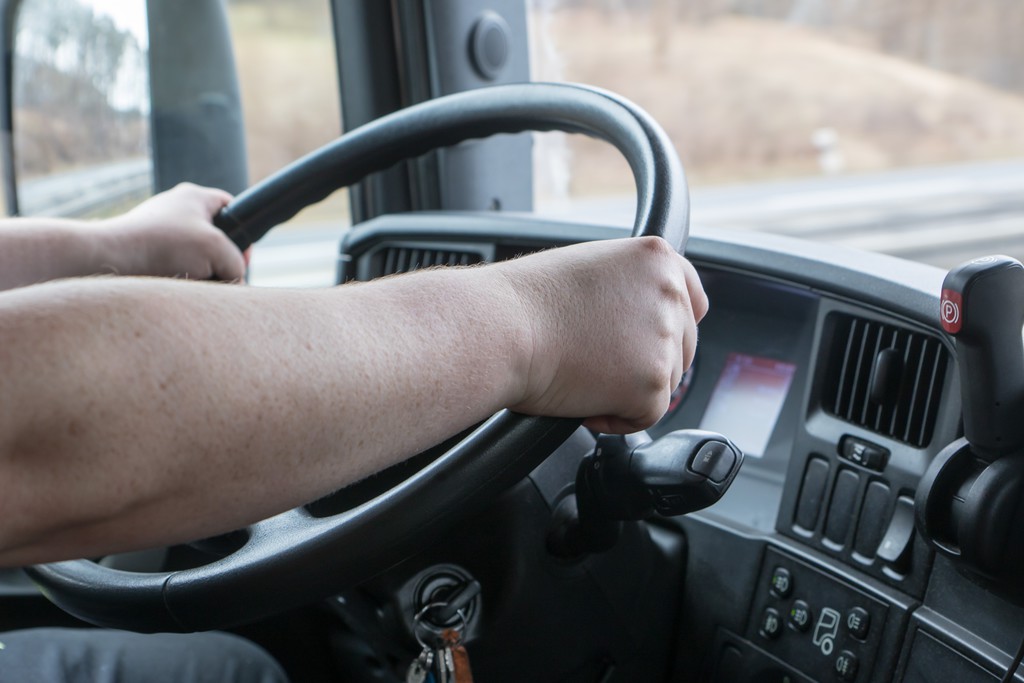
Kelly Rose
Editor

Kelly Rose
Editor
The issues facing international freight haulers are getting worse by the day. While measures such as the ‘big wall’ are being put in place, the understandably desperate attempts by the 10,000 or so migrants in Calais to enter the UK are unlikely to go away. HSM asks David Thompson, managing partner at Moore Blatch Solicitors where this situation leaves directors with regards to the duty they owe their drivers.
The government has a policy of fining hauliers up to £2000 if authorities find someone has managed to hide in their vehicle. No one would challenge policies that are designed to stop deliberate people smuggling, but the assertion that fines are appropriate because hauliers do not have the ‘basic standards of security’ is wrong.
As television news shows, many migrants are determined and will use force and aggression to access vehicles. The problem is not limited to Calais, as many migrants try to access vehicles long before they reach that port.
While operators require that their vehicles park overnight at least 100km from the port, this is unlikely to discourage someone who has already made a journey of hundreds or thousands of miles.
Often, individuals try to access vehicles whilst the driver is asleep, though there have also been reports of migrants erecting barricades of mattresses and setting them on fire to stop lorries.
Where does this leave directors with regards to the duty they owe their drivers? Government guidelines call on 'responsible hauliers' to provide drivers with written instructions on how to prevent access. Systems should be robust, decent security devices fitted and drivers should check around, in and on the vehicle.
I personally believe that asking a driver to inspect inside the vehicle is potentially a safety issue, not least as there have been accounts of knives being pulled on innocent drivers trying to adhere to guidelines.
But the guidelines do not tell the driver what to do when he finds somebody attempting to climb inside. Should he physically try to stop him?
So there’s the Catch 22. Ignore the guidelines, and both the employer and the driver could be fined. In 2015 £4million in fines were issued, a 50% increase on 2014. Alternatively, the driver carries out a full inspection and runs the risk of sustaining injuries, losing income and a vehicle stranded abroad.
A driver instructed by an employer to prevent access to an immigrant in support of the government guidelines who finds him/herself injured as a result, could be able to bring a civil claim for compensation.
The employer therefore faces a stark choice; be fined, or be sued by an injured driver for loss of earnings as well as compensation for injuries sustained in trying to protect his vehicle.
The driver might also be able to take action through the Criminal Injuries Compensation scheme. However, this is a long-winded procedure that’s slow when just dealing with the CICA in England, let alone in conjunction with a European counterpart.
There is also a danger that drivers and crew on board (eg double manning) go 'tooled up' to respond to threats of violence. This could lead to an escalation and serious harm being suffered by drivers and migrants, potentially leading to a situation where they find themselves in trouble with the French police.
There’s also a grey area with respect to health and safety legislation - technically it’s territorial, applying only to activities in England, Wales, Scotland and Northern Ireland and for designated offshore installations such as oil rigs. It does not cover overseas activities by UK companies. But, the duties under HSWA could be breached by the employer failing to organise a safe system of work and by failing to conduct an adequate and suitable risk assessment in respect of the companies operations and the drivers duties in these known circumstances.
So, how does an employer fulfil his duty to provide a safe working environment for drivers, when conflicts might occur? Our advice is to follow government guidelines, give clear instructions to drivers and advise them not to place themselves in danger.
Provide drivers with the ability to document their checks and raise concerns should they have them. Where a driver is concerned and unwilling to carry out internal inspections then they should report this to the authorities on entering Calais, and if they are still concerned, again in Dover. Importantly, they should call ahead to alert the authorities.
By proactively managing the situation you will still risk the fines but the documentation and actions will help the defence.


64 London Road
Southampton
SO15 2AH
UNITED KINGDOM
023 8071 8000